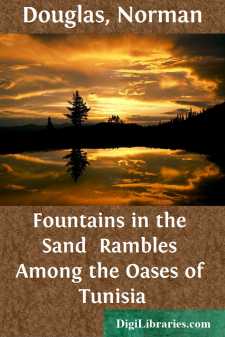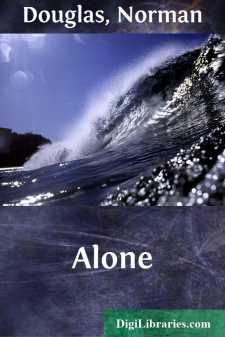Categories
- Antiques & Collectibles 13
- Architecture 36
- Art 48
- Bibles 22
- Biography & Autobiography 813
- Body, Mind & Spirit 142
- Business & Economics 28
- Children's Books 17
- Children's Fiction 14
- Computers 4
- Cooking 94
- Crafts & Hobbies 4
- Drama 346
- Education 46
- Family & Relationships 57
- Fiction 11829
- Games 19
- Gardening 17
- Health & Fitness 34
- History 1377
- House & Home 1
- Humor 147
- Juvenile Fiction 1873
- Juvenile Nonfiction 202
- Language Arts & Disciplines 88
- Law 16
- Literary Collections 686
- Literary Criticism 179
- Mathematics 13
- Medical 41
- Music 40
- Nature 179
- Non-Classifiable 1768
- Performing Arts 7
- Periodicals 1453
- Philosophy 64
- Photography 2
- Poetry 896
- Political Science 203
- Psychology 42
- Reference 154
- Religion 513
- Science 126
- Self-Help 84
- Social Science 81
- Sports & Recreation 34
- Study Aids 3
- Technology & Engineering 59
- Transportation 23
- Travel 463
- True Crime 29
Fountains in the Sand Rambles Among the Oases of Tunisia
by: Norman Douglas
Description:
Excerpt
Chapter I
EN ROUTE
Likely enough, I would not have remained in Gafsa more than a couple of days. For it was my intention to go from England straight down to the oases of the Djerid, Tozeur and Nefta, a corner of Tunisia left unexplored during my last visit to that country—there, where the inland regions shelve down towards those mysterious depressions, the Chotts, dried-up oceans, they say, where in olden days the fleets of Atlantis rode at anchor….
But there fell into my hands, by the way, a volume that deals exclusively with Gafsa—Pierre Bordereau's "La Capsa ancienne: La Gafsa moderne"—and, glancing over its pages as the train wound southwards along sterile river-beds and across dusty highlands, I became interested in this place of Gafsa, which seems to have had such a long and eventful history. Even before arriving at the spot, I had come to the correct conclusion that it must be worth more than a two days' visit.
The book opens thus: One must reach Gafsa by way of Sfax. Undoubtedly, this was the right thing to do; all my fellow-travellers were agreed upon that point; leaving Sfax by a night train, you arrive at Gafsa in the early hours of the following morning.
One must reach Gafsa by way of Sfax….
But a fine spirit of northern independence prompted me to try an alternative route. The time-table marked a newly opened line of railway which runs directly inland from the port of Sousse; the distance to Gafsa seemed shorter; the country was no doubt new and interesting. There was the station of Feriana, for instance, celebrated for its Roman antiquities and well worth a visit; I looked at the map and saw a broad road connecting this place with Gafsa; visions of an evening ride across the desert arose before my delighted imagination; instead of passing the night in an uncomfortable train, I should be already ensconced at a luxurious table d'hôte, and so to bed.
The gods willed otherwise.
In pitch darkness, at the inhuman hour of 5.55 a.m., the train crept out of Sousse: sixteen miles an hour is its prescribed pace. The weather grew sensibly colder as we rose into the uplands, a stricken region, tree-less and water-less, with gaunt brown hills receding into the background; by midday, when Sbeitla was reached, it was blowing a hurricane. I had hoped to wander, for half an hour or so, among the ruins of this old city of Suffetula, but the cold, apart from their distance from the station, rendered this impossible; in order to reach the shed where luncheon was served, we were obliged to crawl backwards, crab-wise, to protect our faces from a storm which raised pebbles, the size of respectable peas, from the ground, and scattered them in a hail about us. I despair of giving any idea of that glacial blast: it was as if one stood, deprived of clothing, of skin and flesh—a jabbering anatomy—upon some drear Caucasian pinnacle. And I thought upon the gentle rains of London, from which I had fled to these sunny regions, I remembered the fogs, moist and warm and caressing: greatly is the English winter maligned!...




